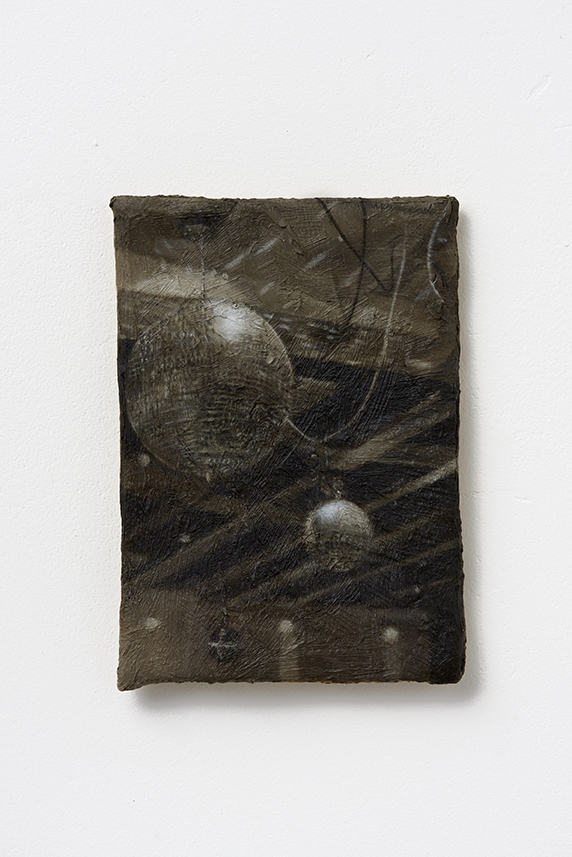Debilitating Nostalgia
Lucy Neish

“For the yellow smoke that slides along the street, Rubbing its back upon the window-panes;”
I paint on canvases knobbled by remnants of past paintings, working with their history to coax out a final version.
I take screenshots of films, or find inadvertently captured images in my camera roll, or poach pictures from WhatsApp groups. I paint in thin films over the thick ground beneath. A cat dead in grass; a goldfinch wrapped in kitchen towel; a twinkling disco ball.
Through a process of gathering and matching, I create filmic collections that take subjects out of context and play with how they are read. This process works in opposition to the digital exchange where images are time stamped and chronicled.
Painting these images through the same sepia green lens, they become unified by an implied gaze. They are tautologous, each recasting the same feeling of nostalgia. But my nostalgia is not rose-tinted; it is murky and unsettling.
“And time yet for a hundred indecisions, And for a hundred visions and revisions”
In September last year I started joking that I had ‘debilitating nostalgia’. I would say it all the time and would feel it ALL the time too. I found it funny because how could nostalgia be threatening in this way?
Debilitating Nostalgia, at DKUK, addresses the space of the hairdresser and our relationship with a past and future self found there.
Thinking back to old ways of seeing can be as disorientating as it is comforting. Vivian Sobchack (Carnal Thoughts, Breadcrumbs in the forest) tells us: ‘When I was a child, I thought North was the way I was facing’. Later, ‘I lost my child’s confidence that I was the compass of the world’. By revisiting her memories, Sobchack achingly reassembles lost ways of seeing.
When I was a young child my parents would watch me in the bath. I remember knowing that if my ears were under water and I spoke above the surface they couldn’t hear. One day my Mum asked me who I was speaking to and the knowing was suddenly lost.
Nostalgia becomes debilitating when it engenders realising how fragile our ways of seeing are – how precariously we position ourselves in and against the world around us.
The Greeks used the word nostalgia to articulate that feeling when returning home, nostos, is tinged with algos (pain). Once the logic that housed an old self has been debunked, that self can never really be returned to.
*Quotes taken from The Love Song of J. Alfred Prufrock, T. S. Eliot
